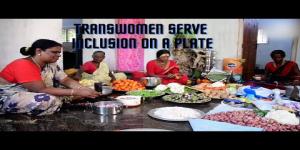Period poverty: A veiled crisis in Sri Lanka
The severity of the period poverty crisis in Sri Lanka calls for immediate action to ensure that the right to dignity of Sri Lankan girls and women is secured. Much responsibility lies in the hands of the government to shape interlinked national policies by correctly recognizing the priorities.

Period poverty which affects millions of girls and women worldwide is a human rights concern that often misses the limelight. It refers to the lack of access to period products and proper education or awareness and sanitary facilities. Nearly 3.5 billion women experience monthly periods globally. According to the charitable organization Days for Girls, nearly 25per cent of all menstruators are affected by period poverty.
The Global Menstrual Collective which includes academic experts from NGOs, United Nations organizations and elsewhere defines menstrual health as a state of not merely being free from disease or infirmity with regard to the menstrual cycle but as a state constituting complete physical, mental and social well-being. As per them, menstrual health involves individuals having access to adequate information about menstruation and proper hygienic practices, access to water and sanitation facilities, the ability to participate in all aspects of life and the ability to live in a stigma-free supportive environment.
Period poverty has evolved to be a serious concern globally due to its consequences ranging from health issues to mental and emotional issues. Individuals lacking access to menstrual products generally use rags or other unhygienic means during their periods. Some even go to the extent of using the limited menstrual products they own for longer than intended. Such unhygienic practices are reported to be likely causing urogenital infections. Apart from the health issues, period poverty also results in absenteeism which refers to the consequence of women and girls not turning up for work or school during periods either due to the unaffordability of menstrual products or the lack of proper sanitary facilities or due to the fear of leaking and the shame following it.
Out of all the challenges associated with period poverty, mental and emotional challenges largely remain undisclosed and unaddressed. Despite being an involuntary biological phenomenon, many eastern cultures associate menstruation with uncleanliness and shame. The stigma thus affects not only one’s self-esteem and sense of control but also the ability to generate a supportive and stigma-free dialogue on menstrual health.
A veiled issue
In the case of Sri Lanka, period poverty remains a considerably normalized and veiled issue. According to Oxfam Gender Coordinator Lakmini Jayathilake, as per the study conducted under the initiative of the Assisting Communities in Creating Environmental and Nutritional Development (ACCEND) Project, period poverty in Sri Lanka comes in three layers. The first layer was the inadequate education and awareness on basic sexual reproductive health which includes menstruation followed by the other two layers; the lack of infrastructure supporting the active participation of women and girls in workplaces and schools; and the lack of access to affordable menstrual products.
Taxation of imported menstrual hygienic products is a leading contributor to the reported absenteeism among teenage girls and women in Sri Lankan low-income households. The reported female population in Sri Lanka as of 2021 was 11.20 million while approximately 5.7 million of them were falling under the category of menstruating women. Despite women making up nearly 52 per cent of the total population, the period tax levied was as high as 42.9 per cent as of 31 May 2022. The 42.9 per cent exorbitant tax constitutes 16.5 per cent Cess tax, 10 per cent Passive Activity Loss (PAL) tax and 16.4 per cent Value Added Tax (VAT). Research conducted by the Advocata Institute under the initiative of the ACCEND Project reports Sri Lanka’s period poverty rate to be 50 per cent meaning that nearly half of the households which include menstruating age women do not report incurring a cost on sanitary napkins out of their household expenditure.
Unaffordable products
As mentioned in the article "Worsening period poverty in Sri Lanka threatens to keep female students home: MP", the prices of sanitary towels skyrocketed from March to September last year resulting from Sri Lanka’s severe currency crisis amidst tax hikes applied on imports. As of September, the market price of a 15-pad pack had ranged from Rs. 350 to Rs. 800. Highlighting the severity of the crisis, the writer cites Minister of Parliament Rohini Kaviratne’s statement that the average price of a sanitary towel pack was approximately Rs. 500 which was equal to the price of two kilos of rice then, which has forced families to make a choice between their staple diet and the hygiene of the women in their households.
Similar to all other countries experiencing period poverty, consequences resulting from the unaffordability of menstrual products range from health to education and employment in Sri Lanka. In a survey based on adolescent Sri Lankan girls, slightly more than a third had responded to skipping school during their periods. The unaffordability of menstrual products is not the only reason for the noted absenteeism, but it is also caused due to the fact that Sri Lanka still has schools, workplaces and public places that lack proper water and sanitation or disposal facilities.
Furthermore, cervical cancer has been reported to be the second most common type of cancer among Sri Lankan women, seconding the findings of a study on cervical cancer risk factors in India which had reported a direct link between the use of cloth as a substitute for sanitary towels and the development of cervical cancer.
In addition, menstruation remains a taboo topic often associated with impurity in many Sri Lankan societies restricting the opportunity for dialogue and awareness raising. The Menstrual Hygiene Management Snapshot-Sri Lanka in 2018 reports of 60 per cent of Sri Lankan school teachers considering menstrual blood impure while 80 per cent thinking that bathing should be avoided during periods.
The severity of the period poverty crisis in Sri Lanka calls for immediate action to ensure that the right to dignity of Sri Lankan girls and women is secured. Much responsibility lies in the hands of the government to shape interlinked national policies by correctly recognizing the priorities. Furthermore, it is the responsibility of the civil society organizations, NGOs and the general public to advocate for knowledge enhancement on sexual reproductive health and for a shift in attitudes through research and awareness dialogues.
(The author is an Undergraduate (Reading) BA (Hons) in International Relations, University of Colombo, Sri Lanka. Views are personal. She can be contacted at sachininavodya2017@gmail.com / https://www.linkedin.com/in/sachini-navodya-29121517a)














Post a Comment